japanese wind chimes
Japanese Wind Chimes: A Great Soothing Influence
James Lau
Posted on March 16, 2023
Share:

Japanese wind chimes, or furin, are a traditional Japanese decoration commonly used during summer. These wind chimes are typically made of glass, metal, or ceramics and feature a simple design that allows them to make a gentle ringing sound in response to the wind.
Japanese wind chimes, or furin, are typically made of glass, metal, or ceramics and feature a simple design that allows them to make a gentle ringing sound in response to the wind. They come in various shapes, sizes, and designs with traditional Japanese motifs such as cherry blossoms, dragons, and cranes.
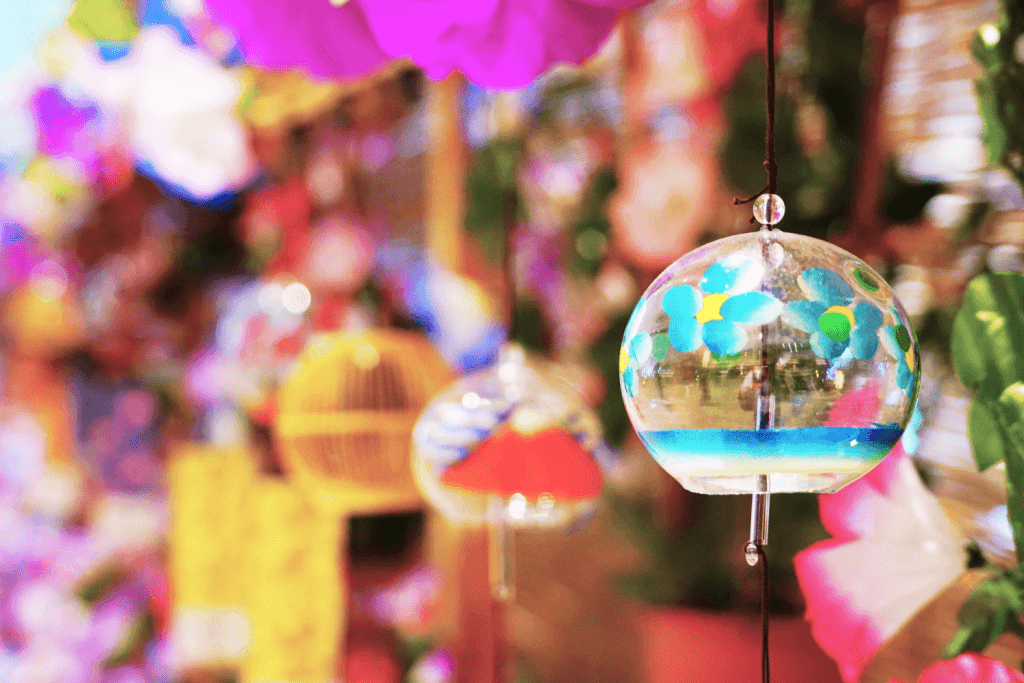
Traditionally, wind chimes were hung outside homes and businesses during the summer, as they cool the air and keep away evil spirits. People also hang them in gardens and temples to enhance the peaceful and meditative atmosphere.
History
Japanese wind chimes have a long and rich history. They were first introduced to Japan from China during the Nara period (710-794) but only became popular in the Edo period (1603-1868). During this time, wind chimes the gentle sound of the chimes created a sense of coolness and freshness.
The use of wind chimes also became associated with traditional Zen practices, which emphasized the importance of creating a peaceful and tranquil environment. Many Zen temples and gardens in Japan feature wind chimes to enhance the meditative atmosphere.
Are you looking to experience even more of traditional Japan? Check out Sakuraco! Sakuraco sends the best of traditional Japanese snacks, sweets, and teas right to your door so you can enjoy the taste of the season right at your home!

Modern-Day Japanese Wind Chimes
Today, Japanese wind chimes continue to be a popular decoration in Japan and around the world. They are in homes, gardens, and other outdoor spaces to create a calming and peaceful atmosphere and are valuable for their beauty, craftsmanship, and cultural significance.
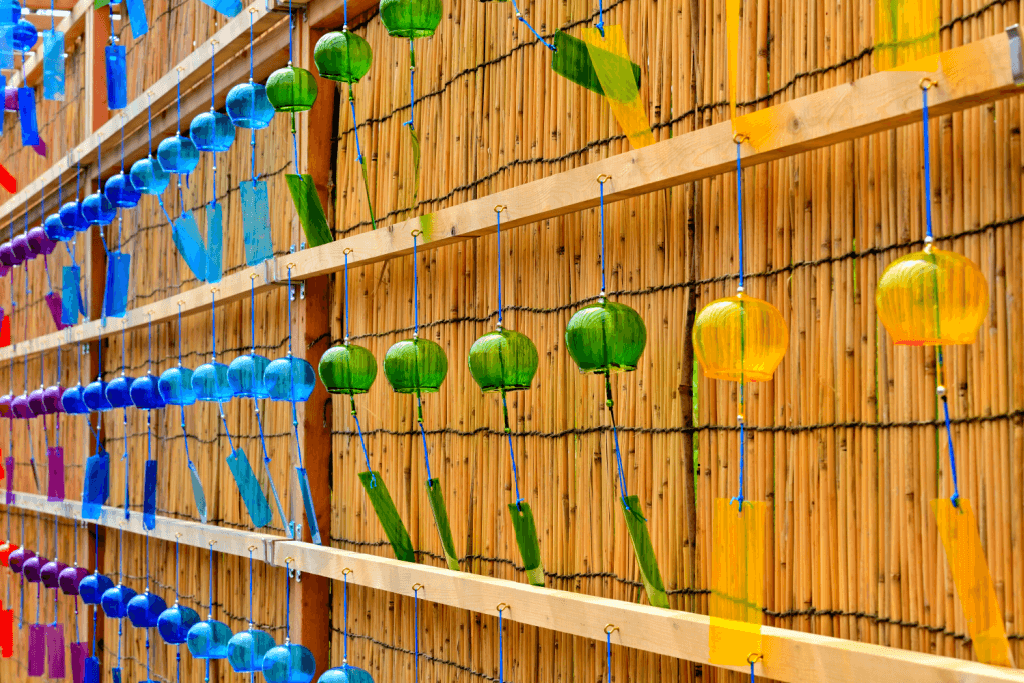
In modern times, wind chimes are present in sound therapy and alternative medicine practices. The gentle sound of the chimes has a calming and healing effect on the mind and body. In addition, they promote relaxation and reduce stress. In addition to their decorative and therapeutic uses, wind chimes deter birds from crops and gardens. The sound of the chimes scares away birds, protecting the plants from damage.

Wind chimes are also a typical decoration in many festivals, including the Tanabata and Nebuta festivals. They add to the festive atmosphere and create a sense of excitement and celebration. Wind chimes are essential during the Obon Festival when they hang outside their homes to guide the spirits of the departed back to the world of the living.

The Takaoka City Great Wind Chime in Toyama Prefecture is over 70 feet tall and weighs over 500 pounds. This important work of art celebrates the 400th anniversary of Takaoka City.
Different Styles of Japanese Wind Chimes
There are many different styles of Japanese wind chimes. Japanese wind chimes are carefully crafted to produce a distinct and beautiful sound. The sound comes from the shape and size of the chime, as well as the materials used to make it.
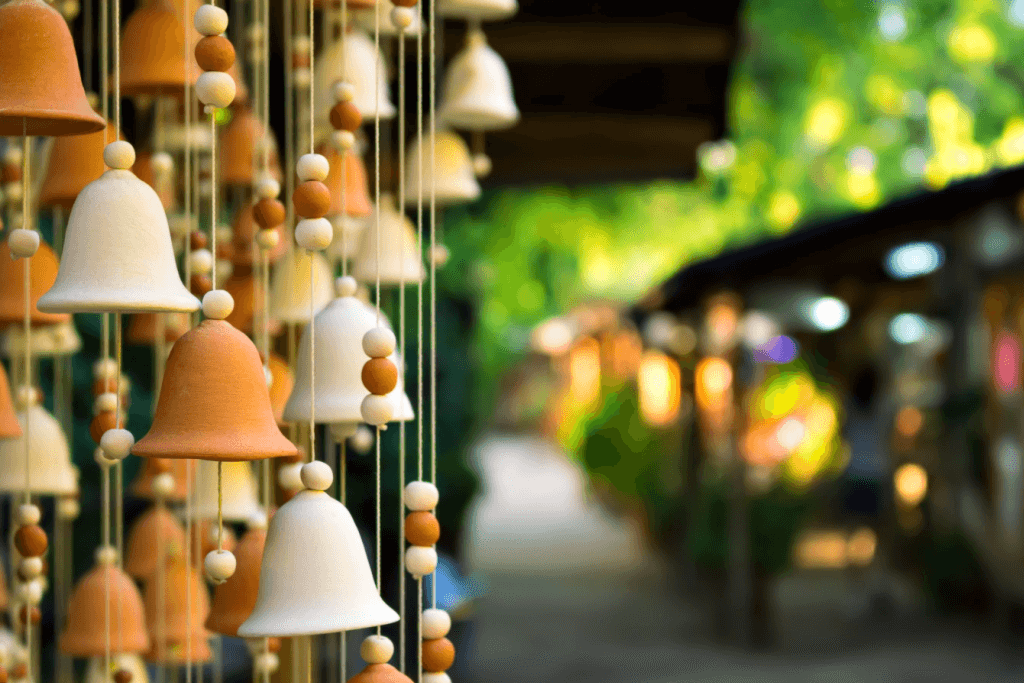
In addition to the standard wind chimes designs, some are for specific purposes. For example, wind chimes can improve business success, bring good luck, or protect against evil spirits.
Some of the most popular styles include:
- Fuurin: Traditional Japanese wind chimes made of glass or metal with a simple and elegant design.
- Ceramic wind chimes: Wind chimes made of ceramic, often decorated with traditional Japanese motifs such as cherry blossoms, dragons, and cranes.
- Bamboo wind chimes: Wind chimes made of bamboo tubes create a deep and resonant sound.
In Japan, wind chimes are popular summer gifts for friends and family. They symbolize friendship and well-being and can potentially offer good luck and spiritual protection. Making wind chimes is popular in Japan, and many people create unique designs. It is also a typical school project for children.
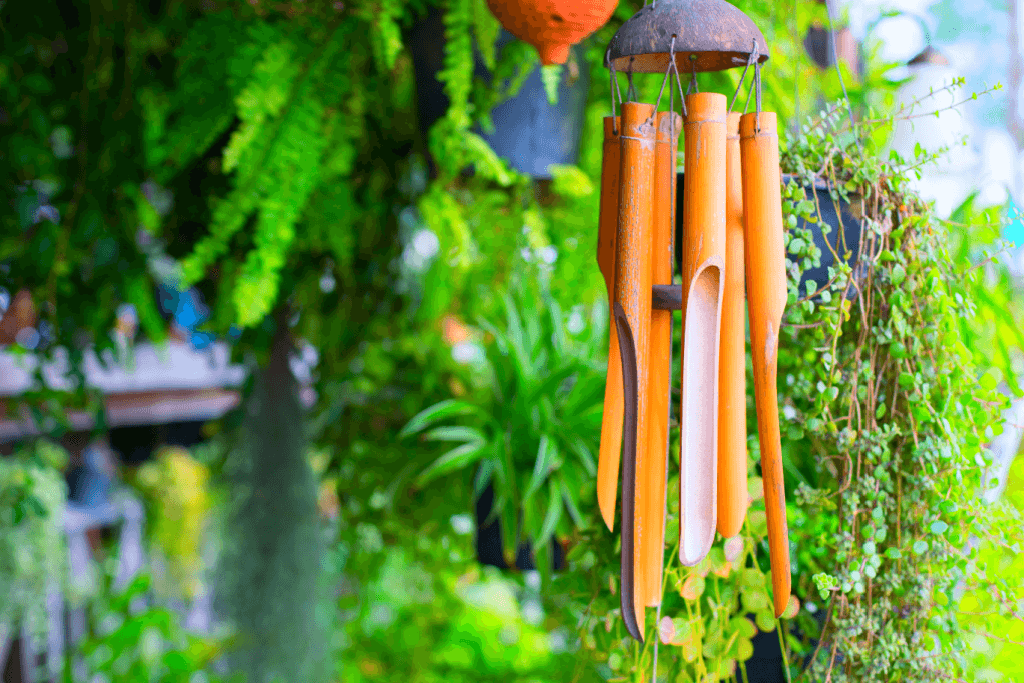
Japanese wind chimes are a beloved symbol of summer in Japan and continue to be a popular decoration worldwide. Their simple, elegant designs and soothing sound create a peaceful, relaxing atmosphere in homes, gardens, and other outdoor spaces. Discover their tranquility and add serenity to your surroundings.
Do you have a wind chime? What sound does it make? Let us know in the comments below!
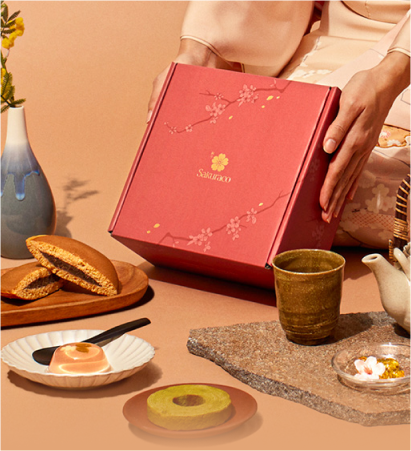
Discover authentic flavors with Sakuraco
Get Sakuraco 

Discover authentic flavors with Sakuraco
Get Sakuraco 
Related Articles

Mount Fuji Tour: Great Adventures Await You This Summer!
Mount Fuji is one of the most famous landmarks in Japan. People worldwide visit to see its beauty and enjoy exciting yearly outdoor activities!
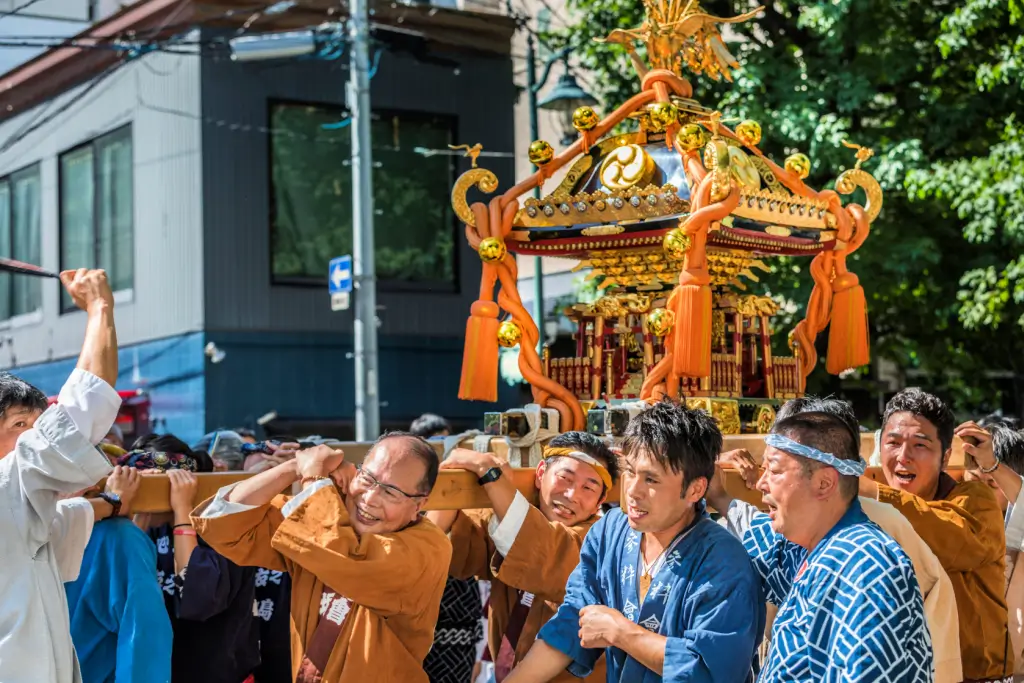
Mikoshi: Why Are These Portable Shrines So Important?
Japan’s summer festivals are known for their energy, color, and tradition. And at the heart of many lies the mikoshi.

Takachiho Gorge and More Natural Wonders from Kyushu
Kyushu is the southernmost main island in the Japanese archipelago. It is most well-known for its food, but is less famous for its natural beauty. The island contains many landscapes, including serene waters, soothing hot springs, and dramatic rock formations like Takachiho Gorge.

Kitakyushu to Kagoshima: An Amazing Kyushu City Tour!
Visiting these cities can help you understand more deeply how the past and present come together in everyday life. So let’s explore five of the most beloved cities on this fantastic island, starting from Kitakyushu!


